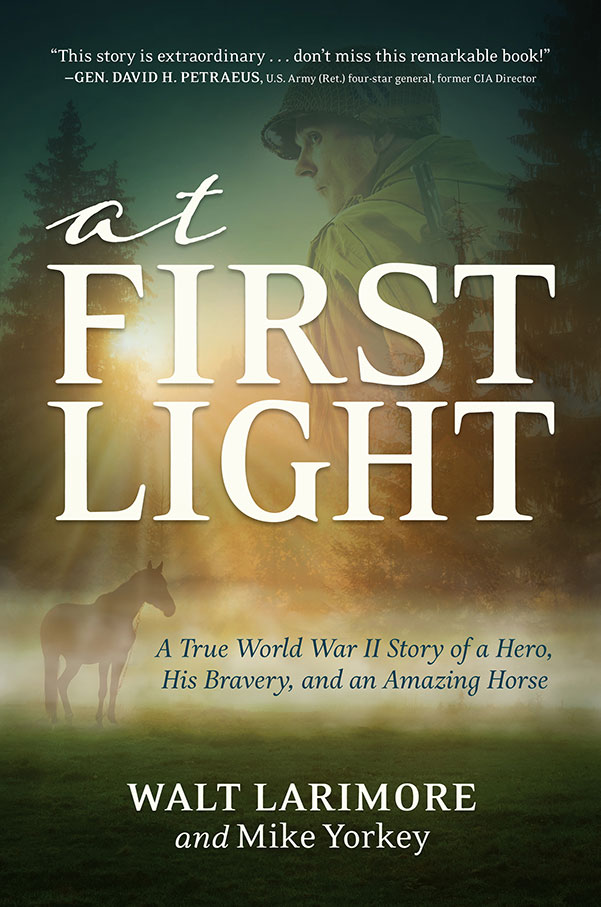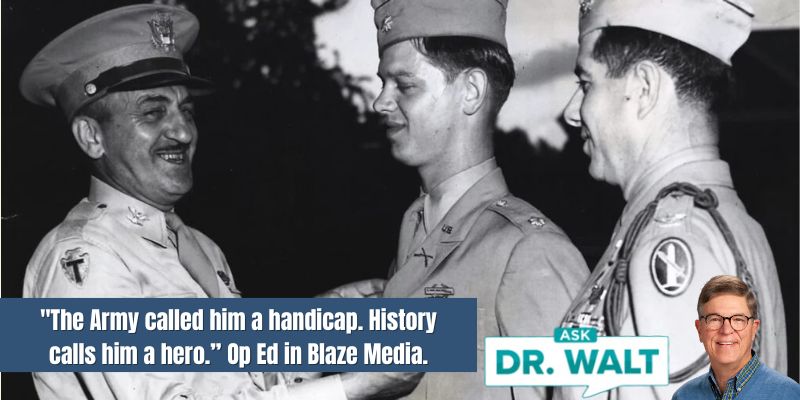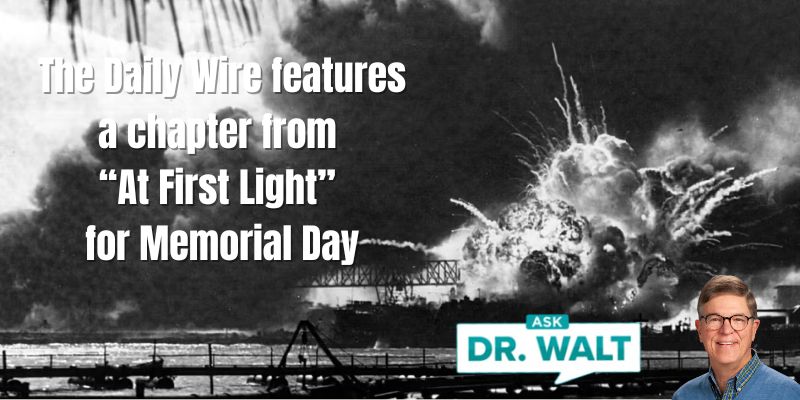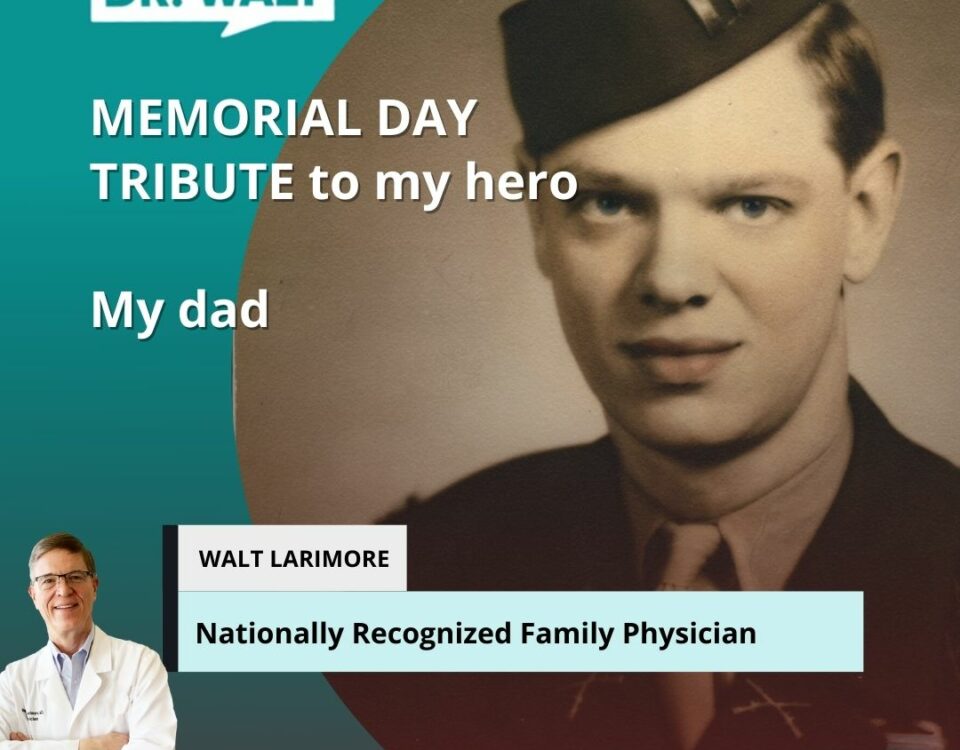
September 17, 1944 — In the Vosges Mountains every battle was difficult or deadly or both
September 17, 2024
September 19, 1944 — In France it is said war comes and goes yet in many ways it never changes
September 19, 2024September 18, 1944 — Phil, his men, and Love Company receive their first Presidential Distinguished Unit Citation
(CONTINUED FROM YESTERDAY)The situation for the few remaining soldiers of Love Company along with Phil and a few of the men from hi’s Ammunition and Pioneer (A&P) Platoon was desperate. They were down to the equivalent of four rifle squads–about 48 men. With their company’s strength of 120 severely reduced and more counterattacks feared, Pridgen radioed their plight to Lieutenant Colonel Neddersen at 1800 hours.[1]

While waiting for a response, Pridgen looked at Phil. “You’ve memorized all the rules of war, Phil. Got one for this type of situation?”
Phil smiled. “Absolutely. It’s Rule of War No. 1.”
“Which is?”
“It says that there are combat situations that cannot be solved by a rule.”
Captain Pridgen laughed. “So, Lieutenant, do you have another option?”
Phil thought a second. “I’d suggest Rule of War No. 16, which says that fire without movement is indecisive, and exposed movement without fire is disastrous. In other words, there must be effective fire combined with skillful movement. In our case, ‘fire’ will have to be what remaining ammo we have and our ability to shriek like German fanatics. Give the SOBs a taste of their own damn medicine.”
The captain pursed his lips, looked over the rock wall, and nodded again.
“I’d say let’s use what ammo we have for marching fire[2] and rush the bastards with our bayonets up, screaming our heads off. Since it’s getting dark, that’ll be an advantage for us.”
Pridgen smiled and slapped Phil on the back. “Let’s do it. On my command.”
They fanned out to prepare their men for the assault and breakthrough—not knowing if what they were planning to do was courageous or suicidal. They had to prepare the men for what was likely going to be a vicious hand-to-hand battle to the death—making sure their bayonets were properly snapped onto their rifles and their knives were ready. Those with remaining ammo would spearhead the attack.
But before Pridgen ordered the attack, the Germans preempted them at 1830 hours when they heard the ominous rumble of an enemy tank moving in. Simultaneously, the Germans began a heavy fusillade from machine guns, rifles, and bazookas that came from at least five different points along the company front. Just as the murderous barrage began to abate, Pridgen and Phil were ready to order their attack.
When the sun set precisely at 1900 hours, a miracle occurred: reinforcements from Company I rushed in. Each man was carrying bandoliers[3] of ammo and grenades, all of which were quickly distributed.
Phil and his two remaining A&P men rushed back to the rear and began transporting in more ammunition, food, water, and supplies to their front line. After a brief respite, the two companies attacked forward and were pleasantly surprised to find no resistance. The Germans had skedaddled back into the town, presumably to set another line of resistance.
When it turned dark, the Americans regrouped and waited until morning to move into the hamlet of Raddon.
At daybreak, they encountered no resistance; the village was empty. The Germans had retreated during the night.Only later, by interviewing prisoners, was it determined what the enemy had planned during that epic series of battles. By overrunning the position held by Company L, the 3rd Battalion would have been split in two, and the enemy would have possessed the wedge they desperately wanted to annihilate the 30th Regiment and prove a threat to the flanking 36th Regiment to their left.
But Love Company, along with Phil and a few of his men, had prevented a disaster.
As a result, the Presidential Distinguished Unit Citation would be awarded to Company L for its gallant stand. One of the men who’d fought with them in Italy and France, Sergeant Harold O. Messerschmidt, was posthumously awarded the Medal of Honor, having given his life on the battlefield.
But there was no time for Phil or his exhausted men to rest on their laurels. Unfortunately, there was a lot of extremely cruel combat left to fight.
~~~~~
[1] Larimore, At First Light, 149.
[2] “Marching fire” was the technique of advancing on the enemy with all guns blazing—for soldiers to keep pressing forward while throwing a wall of lead before them. This kept the Germans’ heads down. This technique, however, was never taught in their initial training, as the soldiers had been coached to fire at specific targets. Early in the European campaign, however, the Army adopted the marching-fire technique to increase Infantry firepower and aggressiveness.
[3] A bandolier is a pocketed belt for holding either individual bullets or belts of ammunition. It’s usually slung sash-style over the shoulder, with the ammunition pockets across the midriff and chest.
Larimore, At First Light, 149-150.
In case you haven’t read or listened to Dad’s book, you can learn more or order it here.
© Copyright WLL, INC. 2024.




